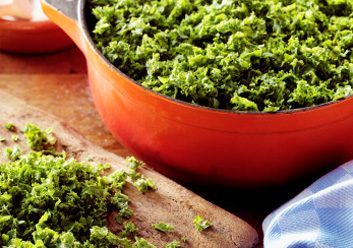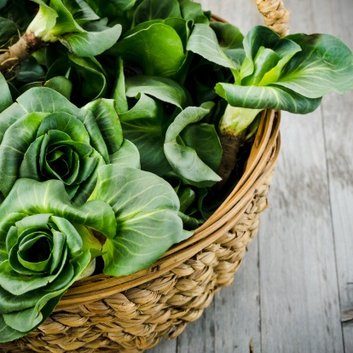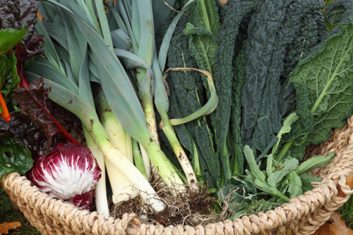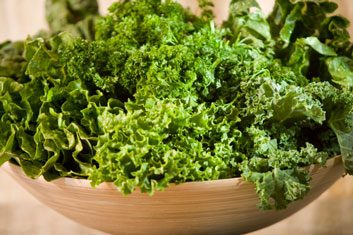
Stay young
As well as playing a key role in helping blood to clot, vitamin K is critical in preventing certain age-related conditions. Researchers in California found inadequate K can lead to cardiovascular disease, bone fragility, and arterial and kidney calcification. A one-cup (250-mL) raw serving of any of the leafy greens here has at least your daily requirement of K, with kale providing more than six times your needs, dandelion greens five times and Swiss chard about three and a half times.

Lower cholesterol
Mustard greens and kale help lower cholesterol. Here’s how: The liver uses cholesterol to make bile acids, which aid in fat digestion. When bile acid binds with the fibre of these greens, it gets excreted from the body-which means the liver has to use up more cholesterol to make new bile acid and, voilà, cholesterol levels are reduced. According to a U.S. study in Nutrition Research, steamed mustard greens and kale do this to a greater extent than raw.

Preserve vision health
Leafy greens-in particular kale, dandelion, mustard greens and Swiss chard-are good sources of carotenoids lutein and zeaxanthin, which help filter high-energy light that may cause eye damage. Lutein and zeaxanthin reduce discomfort caused by glare, decrease the risk of cataracts and increase how far you can see.

Help fuel your body
A one-cup serving of raw escarole provides 1/10 of your daily needs for vitamin B5 (pantothenic acid). The B vitamins help convert the carbs in food to glucose that the body can use as a fuel to produce energy. B vitamins are water soluble, which means the body doesn’t store them, so you need to get enough each day.

Boost bone health
The slightly bitter taste of many leafy greens is a good sign: It reflects their high levels of calcium. It’s unlikely you’d be able to eat enough greens in one day to get the 1,000 mg of calcium recommended daily for women ages 31-50, but they can help you get there: A ½-cup serving of dandelion greens contains 78 mg calcium; mustard greens have 55 mg; Swiss chard has 54 mg; and kale has 49 mg.

Prevent colon cancer
Kale and mustard greens are part of the nutrient-rich Brassica family, which also includes broccoli and cabbage. A study in the Journal of the American Dietetic Association in 2011 linked a higher intake of these vegetables with a decreased risk of cancer in the ascending section of the colon. In Canada, one in 15 women and one in 14 men are expected to develop colorectal cancer.
Related:
• 6 ways to fall in love with Kale
• 8 ways to get your greens
• 6 health benefits of salad greens
